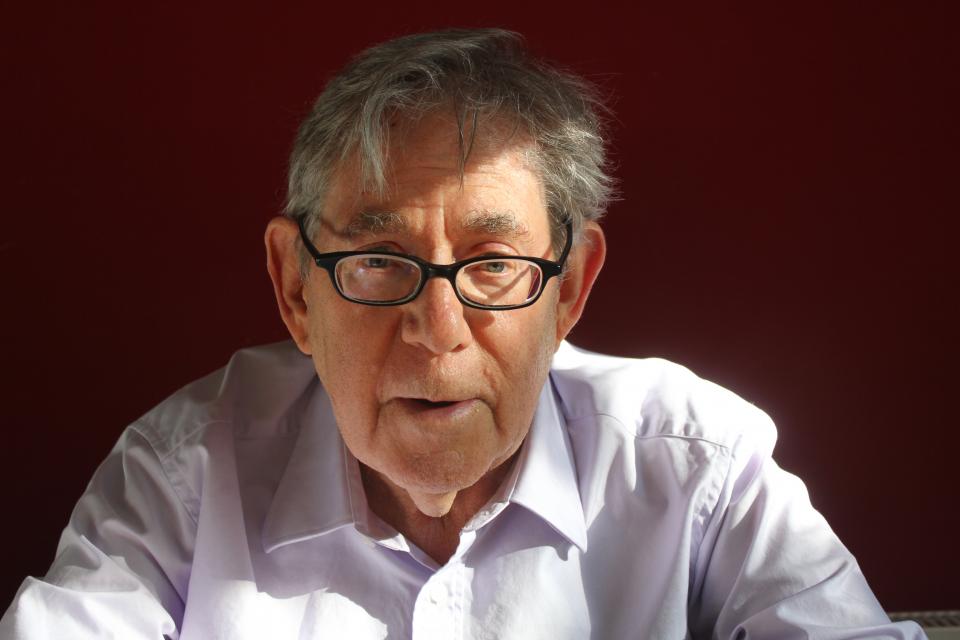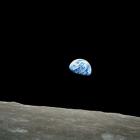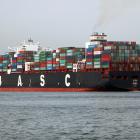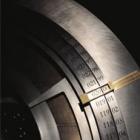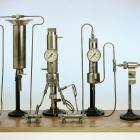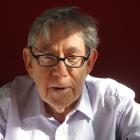“A huge variety of possibilities”: Interview with Nobel Laureate Paul Crutzen on his life, his career in research, and his views on the Anthropocene idea
Mr. Crutzen, you grew up under dire circumstances in Amsterdam in World War II…
Oh yes, I have some bad memories of the wartime. In May 1940 Holland was occupied by German troops. Our school building was turned into barracks for the Germans. The situation was especially difficult for my mother. She had all her relatives, including her mother, in Germany. Every evening we heard the sound of Allied bombers flying over Holland towards Germany to drop their bombs on cities. So in addition to our lives we feared for our family members in Germany. However, a child’s perspective on a war may be different from that of an adult. We played a lot, and war games were amongst our favorites, which appears strange from today’s perspective. Some experiences were very sad. For example, I had a cat called Peter, who was like a good friend to me. Every afternoon he sat on the windowsill waiting for me to come home from school and then ran to the door and jumped on my shoulder to welcome me home. One day Peter was gone and I was very sad. Only after the war did my mother tell me that the neighbors had eaten him. Several of my schoolmates died from starvation. The Hongerwinter in Amsterdam was awful! Schooling could take place for only a few hours a week and most children lost at least a year. With some help from the headmaster, who gave extra lectures in his home for the best three pupils, I managed to make it to high school.
In those dark days, was there anything that hints at your later career as a scientist?
I loved observing the world around me and trying to explain it. My parents told me funny stories of that. One evening I was looking at the moon, which was not round, like I thought the moon should be, so I said: “maan is stuk” (“moon is broken”). On a walk along a gracht, as we call canals in Amsterdam, I saw somebody’s head on the water. I did not know that people can swim, so I thought there was a man without a body in the water. One wintry night my parents found me standing in front of the window of a cold bedroom admiring my very first snowfall. I was shivering with cold, but I didn’t care. Also I loved dictionaries. When I had learned to read, I wanted to learn foreign languages by studying dictionaries. I could read the words, but of course I did not even know how to pronounce them.
What did you long for in your early days?
Apart from basic needs like food and peace I longed for snow-clad mountains. But there are no mountains in Holland. During the war we could not travel outside Holland. I looked at the clouds instead and I imagined that they were mountains.
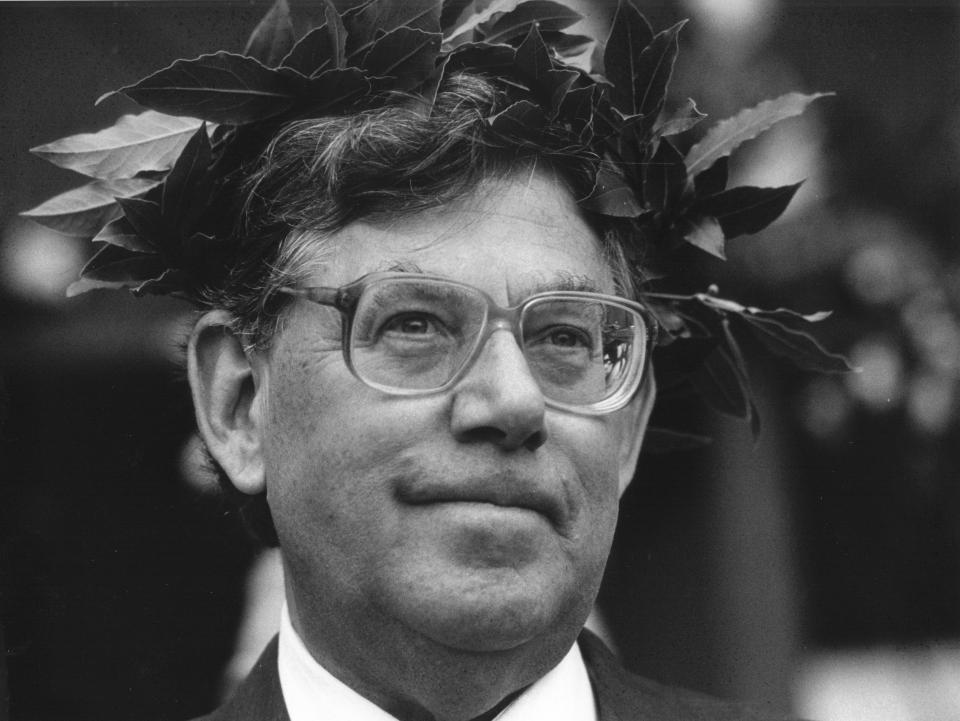
Paul Crutzen at the reception following the award of the Nobel Prize for Chemistry in Mainz, 1995.
Paul Crutzen at the reception following the award of the Nobel Prize for Chemistry in Mainz, 1995.
© Alfred Klemm. Used by permission.
The copyright holder reserves, or holds for their own use, all the rights provided by copyright law, such as distribution, performance, and creation of derivative works.
After the war, you didn’t go into natural sciences immediately. Could you describe your path towards becoming a Nobel Laureate in Chemistry?
Chemistry was not at all my favorite subject in my high school, the Hogere Burgerschool. I was much more interested in physics, astronomy, and mathematics. In my free time I read books about astronomy and about voyages around the world. I played soccer and chess and skated along the canals whenever that was possible. After high school I would have wanted to go to university, but I didn’t get a scholarship, because I was very ill with high fever during the entrance exam and my grades were not good enough. I could not ask my parents for the money needed for studies. We were not a particularly rich family. My mother kept the family together in difficult times, as my father was often unemployed both during and after the war. My mother worked as a cleaning woman in the kitchen of a hospital. I entered engineering school and worked in bridge construction for the city of Amsterdam, interrupted by two years in the military service. That was a tense time because of the uprising in Hungary against the communist regime.
So how did you land a job in meteorology and how did you enter atmospheric chemistry?
During a short vacation I hitchhiked through Germany and France. I also went to Switzerland, where I was at last able to see the mountains I had dreamed about in my childhood. At the top of Mount Pilatus I met a Finnish student working as an au pair in Lucerne. When my military service was over, I went to Helsinki to see her again. For two years we kept in touch by writing letters; in this way we got to know each other quite well. Terttu and I married in February 1958 and moved to Gävle, Sweden, where I got a job at a house construction firm. But I wanted to do something more interesting. I was lucky to notice in the newspaper that Stockholm University was looking for a computer expert. I applied and got the job, even though I was no expert at all. We moved to Stockholm, and alongside the job I was able to study mathematics and meteorology at the university. It was my first step in my academic career. My wife Terttu was always there for me, from the time I was a working student and she took care of our two daughters. She gave up her studies in Finnish history and literature so I could pursue my scientific work. So no, I did not have a straight career path at all.
You then entered atmospheric research. Was that pure science for you or were you already concerned about the environment?
Before about 1970, when I was a postdoc in Oxford, the environment was not high on my list of interests. Scientists in general did not show much interest in the environment then. The general feeling at that time was: “nature is so big and humankind so small.” Maybe the realization that this assumption was wrong turned me into an “anthropocenist”— an “Anthropozäniker,” as one might say in German—40 years later. It was actually my involvement as a computer programmer in the supersonic transport program (SST) that got me gradually interested in environmental issues. Harold Johnston and I looked at the danger of a large fleet of supersonic aircraft flying in the stratosphere, because they would emit nitric oxide (NO) and could deplete the ozone layer that protects Earth from solar ultraviolet radiation. Luckily the large fleets of SSTs were never built, mainly because of the high cost. However, that did not mean that stratospheric ozone was safe.
Before your research, it was not known that the ozone layer could be damaged…
Indeed, nobody had thought that small man-made substances could have a large effect on stratospheric ozone. My main supporter was Professor Bert Bolin, the head of the Stockholm department of meteorology and a world expert in CO2. He gave me a lot of freedom to begin my own independent research. My early papers were all concerned with the natural chemistry of the stratosphere, with an emphasis on ozone. But I realized that the soil could be a large source of nitrous oxide (N2O), which is converted to NO in the stratosphere, which then acts as catalysts to destroy ozone. Thus I discovered how the biosphere exerts an influence on ozone.
Did you realize how dangerous this effect could be?
Yes, absolutely, and shortly after that an even greater danger was discovered in the shape of almost inert chlorine in organic molecules, the so-called chlorofluorocarbons (CFCs), which are broken down by solar ultraviolet radiation above about 25 kilometers. They were used in spray cans and refrigerators without analysis of the impact of the chlorine on ozone. In fact, people believed that they were absolutely safe. How wrong they were! When I read the paper by Rowland and Molina in 1974, I knew immediately that they were right, and I developed a photochemical model to show this.
As a consequence of this ozone research, a global political fight started over banning the most dangerous CFCs. What made you participate in that controversy?
The chemical industry denied the connection between their substances and the ozone layer, because they wanted to keep selling them. I felt that it was my duty to make my research in this area known. Loss of ozone in the stratosphere allows more ultraviolet radiation to reach the Earth’s surface and cause skin cancer. The consequences of major ozone depletion would have therefore been disastrous. The appearance of the ozone hole over Antarctica during springtime was the greatest surprise in atmospheric chemistry. It implied an almost complete destruction of ozone in the stratosphere over Antarctica, at a location where it was least expected. Since then, I frequently ask myself what other surprises may await us.
In 1988 the United Nations outlawed the most dangerous CFCs with the Montreal Protocol. Is the ozone layer now safe?
The protocol is doing its job. But it will take a long time for the ozone layer to fully recover. We can’t do much more at the moment than wait for positive effects. It’s impossible to pull CFCs out of the atmosphere—like so many other substances that shouldn’t really be there.
Years after your ozone findings you coined the word Anthropocene. How would you explain that idea to a school child?
That’s actually a more difficult task than giving a scientific talk. But let me try: Anthropocene means that, in today’s world and for the foreseeable future, what is happening on Earth is strongly determined by what humans do. Humans like you and me are shaping our home planet to a greater degree than other natural processes. That is a huge responsibility.
When and how exactly did the Anthropocene idea enter your life?
At an Intergovernmental Geosphere Biosphere Program (IGBP) in Mexico in the year 2000, in which I participated, the chairman mentioned the Holocene again and again as our current geological epoch. After hearing that term many times, I lost my temper, interrupted the speaker, and remarked that we are no longer in the Holocene. I said that we were already in the “Anthropocene.” My remark had a major impact on the audience. First there was a silence, then people started to discuss this. In the coffee break, somebody approached me and said I should patent the term. After my talk I looked to see whether the term Anthropocene had been used before. Indeed it had, by a limnologist of the University of Michigan, Eugene F. Stoermer.
So you didn’t take the idea from Stoermer, who had used it earlier, but you had the idea to speak of an “Anthropocene” independently from him?
Yes, I came up with the idea independently and I think that my impetus made it possible for the Anthropocene idea to take off in the public and scientific arenas. I contacted Stoermer and we published a paper together in the IGBP Newsletter. I don’t really know how Stoermer got his idea. We have never met.
Do you consider the Anthropocene a scientific fact by now or do you see big unanswered questions around whether it really amounts to a new geological epoch?
Yes, the Anthropocene is derived from fossil records, just like the earlier geological periods. The pressures exerted by human activities have strongly increased. This includes the manufacturing of many synthetic compounds that will leave long-lasting traces, which can also be used to measure our influence.
Is the Anthropocene idea a purely scientific hypothesis or is it more?
It also develops into a metaphor about the relationship between nature and humankind, with the latter initially on the receiving end. This changed with the growth in world population due to medical and technical advances. The human race increased its power over nature, a landmark of the Anthropocene era. But if we just keep increasing our power, both nature and humankind will become losers.
Do you consider the Anthropocene idea to be a beautiful idea?
Beauty or ugliness are not sharply-defined properties; they depend on times and locations. The Anthropocene is not a single identity that can be beautiful or ugly, but a huge variety of possibilities that cannot be ranked.
In 2002, you wrote an article in Nature magazine, “The Geology of Mankind,” in which you assign scientists and engineers a central role in solving humankind’s problems. Are they more important than politicians?
Ultimately politicians will have to make some bold decisions to change course. Scientists and engineers can help but their real power lies in making positive innovations possible, not in decision making. However, those innovations are central to our future—and like it or not, some of them will come from technocrats or even the military.
Could geo-engineering be such a case? Should it be developed and deployed?
I would not apply geo-engineering at present, but research should be carried out. I’m already surprised by how many pursue it as a research topic. I share the fear, however, that researching geo-engineering will lead to an attitude that CO2 reductions can be postponed because sulfur injection technology will save us from dangerous climate change. That would be totally wrong. I am doubtful that geo-engineering will be used because of its cost and its side effects. We should definitely not count on it.
In late 2013 the IPCC published a new comprehensive report on climate change. Critics argue that warming has paused for 15 years. Is it possible that something is wrong with some of the basic assumptions of the IPCC?
The Earth’s climate system is very complicated, so I am not at all surprised that there is some deviation between reality and the models. But there’s already a pretty good explanation of why warming happens slower than projected: it has to do with cooling processes in the tropical Pacific. But such phenomena will not permanently halt warming because of increasing amounts of CO2 and methane in the atmosphere. It would be a huge mistake to lean back now and think that climate change is a minor problem. That would be hugely risky. I am fully on the side of the IPCC here.
How should politicians react to the IPCC warnings?
Every politician would be well advised to really look into this matter, study all IPCC publications thoroughly, and then act and adapt policies accordingly. It is incomprehensible, for example, that governments around the world still subsidize the consumption of fossil fuels with a staggering $500 billion annually. This money could indeed be better invested elsewhere.
When you give talks on the Anthropocene, you often present a long list of daunting problems, like climate change, resource consumption, and biodiversity loss. In your eyes, is the Anthropocene a purely negative event?
No, it’s not only negative. I see many positive changes. Solar energy is becoming more affordable for many people, global health is improving, and there is less poverty in the Third World. There hasn’t been a nuclear war. Thus I have not lost hope. But humankind faces huge problems. The Anthropocene will not be an easy ride at all.
How could the Anthropocene idea itself contribute to a better world?
We must emphasize the tremendous achievements of humankind so we get a stronger feeling that we aren’t doomed but can make smart decision for a smart future.
What are the key political and economic changes that need to happen for a “Smart Anthropocene”?
I still think that one of the most important tasks is to abolish or hinder the spread of the “ABC” weapons: the atomic, biological, and chemical weapons. If that does not happen, they will be used eventually. Together with colleagues I have researched intensively how disastrous a nuclear winter—caused by the large amounts of black smoke produced by the many wartime fires, which block out sunlight—would be. My research findings haunt me. Another topic that is widely ignored is the looming shortage of the element phosphorus. We need this element to produce fertilizer and to feed humans into the future. In order to avoid turmoil, recycling procedures should be developed and implemented globally for phosphorus, and also for the rare earth elements used in the electronic industry. There are so many things that need to be achieved: national and international budgets need to be kept under control, so debt does not increase and burden future generations even more. Also, we can never do enough to enhance freedom of speech and the press, to promote equal rights, and to end racial discrimination. We need to bring much more respect into our lives. Respect for humans, for nature and all animals, for art, culture, and education. We need to place respect at the center of our culture.
Today, more than 1 billion people still live in absolute poverty. At the same time, the United Nations has revised its forecast and now projects 11 billion people for the year 2100. What needs to be done to address both problems?
That’s a real dilemma and I am afraid to say that there is no easy option. Many countries are confronted with both famine and overpopulation. China, with its government-enforced one child per family policy, is demonstrating one possibility. Likewise, the high-income democracies have seen birth rates decrease because of increasing wealth and consumption levels. There’s no straightforward answer I could give.
The Anthropocene idea is now widely used in the environmental debate—are you surprised by how popular it has become?
Yes. I really thought it would be something only for the scientific community because it’s such a vast and complex topic. But obviously I underestimated the power of this idea. The Anthropocene idea is now animating many people in many places in new ways and I am very happy about that.
There’s criticism that the Anthropocene idea is anthropocentric. Critics like Andreas Weber say that it will make humans feel more important than we are and neglect nature even more. What’s your response?
I was not aware of that criticism. But when people examine whether the Anthropocene idea is a symptom of human hubris or of anthropocentric thinking, I am happy to join the debate, because those are good points to discuss. However, what humankind has achieved during such a geologically very short period is so unique that it deserves a special place in any discussion like this. We humans only have our human brains and through them we understand the world. So even when you take into account the perspectives of other species, you are using a human brain. The situation would be totally different if there was another species on Earth that could say “I.” Then we would face a totally different—and very interesting—situation.
When people start thinking on the huge geological timescale, might that make today’s problems look smaller?
This is a very important point that needs further debate. How long are the timescales on which we can think and act? Currently, scientists and engineers add to Earth’s knowledge pool year by year, in a catalytic fashion.
For instance, one could say that climate change might be bad now but that it will stop the next ice age and thus be a good thing in the long term…
Through most of human history much wider parts of Earth were covered with ice than today. But now our civilization is attuned to the post-glacial climate in which it thrived. If another ice age was starting, our descendants would probably do everything in their power to stop it. And that may actually be okay. But I don’t think one can justify today’s global warming with the argument that it will stop another ice age. Global warming will probably play out on such a long time scale, but we are not yet in a position to make conscious and educated decisions about questions like this.
If you had the chance to start your scientific career again, which field would you choose today?
I quite liked building bridges when I was young. When I am in Amsterdam, I sometimes go to bridges that I helped construct. So I might be tempted to go into bridge building again. However, I think that I would choose astronomy. I love gazing into the universe, knowing these are distances of many light years. And actually I quite like the idea of spreading life from Earth to other parts of the cosmos.
What’s your key message for young people of today, those pioneers of living in the Anthropocene?
Discover the beauty of our planet; there is so much of it on our planet. Be proud of unique, great human achievements. Use your innovative power. Ask yourself what you can do to eradicate poverty and how you can share the beauty and the wealth of planet Earth with others.
Do you think it is necessary to reduce consumption, like becoming a vegetarian or reducing car use to a minimum? Or will we innovate our way out of the problems with new technologies and efficiency?
We definitely must reduce consumption. As Mahatma Gandhi pointed out, the Earth provides enough to satisfy every person’s needs, but not for every person’s greed. In order to accommodate the current Western lifestyle we would need several more Earths, which we will never have.
Please allow yourself to speculate. How long do you think will the Anthropocene last?
If you view the Anthropocene as the sum of all human impact, the geological signs that last for a long time will certainly strengthen over time if the human population grows to 10 or 11 billion and Western consumption levels spread globally. If you view it as an opportunity for smart development, then everything depends on how wisely and fairly we use the Earth’s resources, and how good we are at developing smart technology and medicine. If humanity does not change its mode of operation, the future of the Anthropocene might be very short.
So imagine you are a geologist one million years from now. Which geological signals would you see from our current “mode of operation” and which different geological signals would you like to see from the better “mode of operation” that you ask for?
One million years? You assume that there is intelligent life around to collect and interpret the signals. That is a very optimistic assumption, looking at the situation right now.
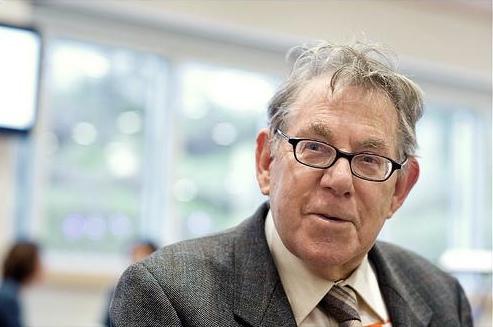
Paul Crutzen at the European Parliament at a seminar on the future of oil in 2010
Paul Crutzen at the European Parliament at a seminar on the future of oil in 2010
© European Union 2011 PE-EP/Pietro Naj-Oleari. View image source.
 This work is licensed under a Creative Commons Attribution-NonCommercial-NoDerivs 2.0 Generic License.
This work is licensed under a Creative Commons Attribution-NonCommercial-NoDerivs 2.0 Generic License.
Have you remained an optimist?
Did I say I am an optimist?
But what makes you feel optimistic?
All the beautiful things around us like arts and literature that make us feel happy. There are so many beautiful things humankind is creating that I wonder when we will make Earth more beautiful again instead of depleting everything. Another thing that makes me feel better is that our negative impacts might actually help us understand the world. My research on our vulnerable atmosphere has really terrified me. But eventually I thought: What would we have known about our atmosphere if it had not been polluted? Because pollution gave us the impetus and triggered the funding to study the workings of the environment.
The interview was conducted by Christian Schwägerl (2013).
Christian Schwägerl is a journalist and author. His publications include “Menschenzeit” (in English: “The Anthropocene: The Human Era and How it Shapes our Planet”), which significantly contributed to the Anthropocene Project at the Haus der Kulturen der Welt in Berlin and the special exhibition at the Deutsches Museum.
- Previous chapter
- Next chapter


